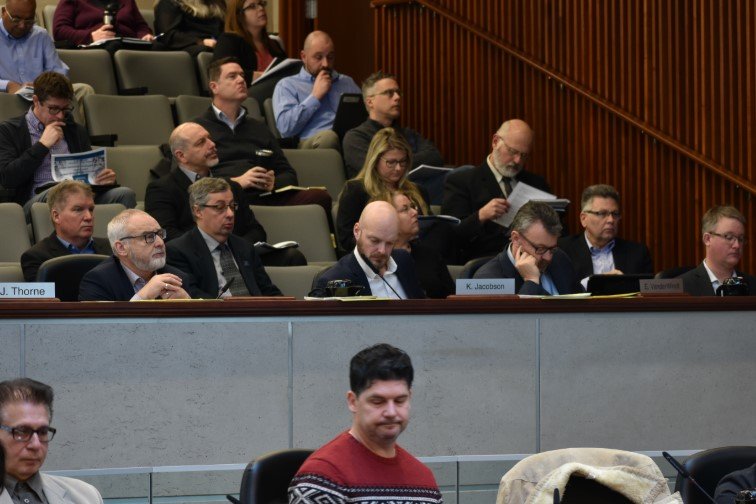Aurora’s City Council has approved new rules to limit certain types of businesses in low-income neighborhoods, aiming to reduce what they call predatory practices. The decision, made on November 4, 2025, targets areas like East Colfax Avenue and focuses on stores such as vape shops, pawn shops, and check-cashing spots to boost community health and redevelopment.
Council Approves New Business Limits
The Aurora City Council voted to move forward with an ordinance that restricts the clustering of specific retail outlets in underserved parts of the city. This comes amid ongoing debates about urban blight and economic fairness in neighborhoods struggling with poverty.
Council members argued that too many of these businesses exploit residents and hinder growth. The rules would require new stores in these categories to be at least a certain distance from each other, similar to zoning laws in other cities.
Progressive candidates have shown strong leads in recent council races, which may influence how these policies play out. Election results from November 2025 indicate a shift toward leaders who prioritize community protections over unchecked business expansion.

This move follows years of complaints from locals about crime and poor living conditions in areas like northwest Aurora. Data from local reports show that these neighborhoods have higher rates of poverty, with median household incomes around 20 percent below the city average.
Reasons for the Restrictions
Supporters of the ordinance point to studies showing that dense clusters of high-risk retail can worsen social issues. For instance, research from urban planning groups highlights how easy access to pawn shops and payday lenders can trap people in debt cycles.
In Aurora, officials noted that East Colfax Avenue has seen a rise in such businesses over the past decade. A 2024 city analysis found over 50 liquor stores and motels in a small stretch, linked to increased crime reports.
The council aims to create space for healthier options, like grocery stores or family-friendly shops. This could lead to better job opportunities and safer streets, according to city planners.
Key factors driving the decision include:
- High crime rates in affected areas, with a 15 percent increase in thefts reported in 2025.
- Resident feedback from community meetings, where over 60 percent supported limits on vape and tobacco outlets.
- Economic data showing that these businesses often charge higher fees to low-income customers.
Opposition and Free Market Concerns
Not everyone agrees with the new rules. Critics, including some business owners and free market advocates, say the restrictions interfere with economic freedom and could hurt small entrepreneurs.
One local editor argued that blight stems from deeper issues like poverty, not the businesses themselves. They claim that limiting options might drive away investment rather than attract it.
Conservative voices on the council have mixed views, with some who once opposed similar regulations now backing them. This shift highlights the complex politics in Aurora, where recent elections saw conservatives aiming to expand their influence but facing pushback.
Business groups worry about job losses. A survey from a Colorado chamber of commerce estimates that up to 200 positions could be at risk if stores close or relocate.
Impact on Local Communities
Residents in poor neighborhoods like those near East Colfax Avenue stand to see the most change. These areas, known for their diverse populations, have long dealt with limited access to quality services.
The restrictions could pave the way for revitalization projects. For example, city funds might support new developments, drawing from successful models in Denver where similar rules led to a 10 percent drop in nuisance complaints.
However, challenges remain. Some locals fear higher prices or fewer convenient options for everyday needs.
Here’s a quick look at affected business types and their current numbers in northwest Aurora:
| Business Type | Current Count | Proposed Limit per Mile |
|---|---|---|
| Vape Shops | 25 | 5 |
| Pawn Shops | 18 | 4 |
| Check-Cashing Stores | 22 | 6 |
| Liquor Stores | 35 | 8 |
This table is based on 2025 city data and shows how the ordinance seeks to thin out concentrations.
In nearby areas, similar policies have mixed results. One study from 2024 found that restricted zones saw a small uptick in property values but also some store closures.
Communities might benefit from reduced exploitation, but experts warn that without broader support like job training, the changes could fall short.
Broader Context in Colorado
Aurora’s decision fits into statewide trends where cities tackle urban inequality. Denver has enforced rules on short-term rentals and commercial parking, aiming to balance growth with resident needs.
Recent events, like the 2025 elections where Democrats led in Aurora races, signal a push for progressive policies. This includes addressing issues from water shortages to nonprofit funding, all tied to community well-being.
Nationally, cities like Chicago and Los Angeles have similar ordinances, with varying success. A 2025 report from the Urban Institute notes that such limits can reduce poverty traps if paired with investments.
In Aurora, this ties to ongoing talks about crime and immigration, with some linking business clusters to broader safety concerns.
What Happens Next
The ordinance now heads to final approval stages, with public input sessions planned for late 2025. City officials expect implementation by early 2026, pending any legal challenges.
Business owners have time to adapt, and the council promises support for those affected. Monitoring will track if the changes lead to real improvements in neighborhood quality.
As Aurora evolves, this policy could set a precedent for other Colorado cities facing similar issues.
Share your thoughts on these business restrictions in the comments below, and pass this article along to friends interested in local news. Your input helps shape the conversation.








